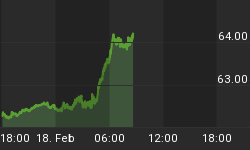Just last year, on a day in July, impoverished El Salvador celebrated its eighth murder-free day in two decades. It’s not much cause for celebration unless you have one of the highest murder rates in the world--but you take victories where you can get them. The 24-hour ceasefire was short-lived in more ways than one. This past weekend, upon the order of El Salvadorian President Nayib Bukele, armed police and soldiers briefly stormed the nation's parliament, demanding increased means for fighting gang violence.
Previously, President Bukele had demanded that opposition lawmakers vote to approve a $109 million loan procurement for his Territorial Control Plan designed to fight gang violence and restore a semblance of security to the country.
The opposition right-wing ARENA and leftist FMLN parties say they want more details on the spending plan before a vote. After legislators refused to gather to vote on the loan, which would provide better equipment to police and armed forces, Bukele called on supporters to converge on parliament.
They showed up with guns, offering a show of violence to express exactly how deep the need is to better fight violence.
Addressing his supporters outside the parliament building, President Bukele said he could “press the button” to have opposition lawmakers forcibly removed from the chamber.
"But I asked God and God told me: patience, patience, patience. On February 28 all these scoundrels are heading out the door," he said, referring to the parliamentary elections scheduled for later this month.
Bukele has now given lawmakers one week to approve his loan proposal, which is earmarked for the purchase of police vehicles, uniforms, video surveillance equipment and a helicopter.
President Bukele, a former businessman and mayor of San Salvador, took office last June, pledging to tackle the legacy of gang violence and corruption.
Related: The Politics Of Love In The Digital World
He is also ready to prioritize the country’s ties with the United States, describing it as its number one ally, particularly when it comes to the economy. His first move to that effect was to sign an asylum cooperation deal during a meeting with Trump last September.
He also pledged to look into ties forged with China under the previous administration, as well as predecessor’s close alliances with the left-wing rulers of Nicaragua, Venezuela and Cuba. Last November, Bukele expelled Venezuelan diplomats and recognized Juan Guaido as Venezuelan legitimate leader.
In the meantime, Bukele claims that his Territorial Control Plan is already showing signs of success, with average daily murders down since its launch.
Government data shows that the average daily killings in the country fell from 9.2 in May 2019 to 3.8 in January 2020.
Still, with a population of 6.3 million, El Salvador is believed to have more than 70,000 active gang members and some 500,000 involved in the gangs indirectly, either through coercion and extortion by relatives.
Back in 2012, two main gangs--Mara Savatrucha and the Barrio 18--brokered a peace deal that led initially to a 40% drop in the murder rate. That peace was short-lived, though. Today, the two gangs are estimated to be extorting around 70% of all businesses in the country and annually collecting some $35 million from those activities.
The financial cost for businesses is much higher, according to Quartz. Extortion, hiring private security and money lost because of violence has reached $4 billion per year, about 15% of the country’s GDP.
By Anes Alic for SafeHaven.com
More Top Reads From Safehaven.com:
















